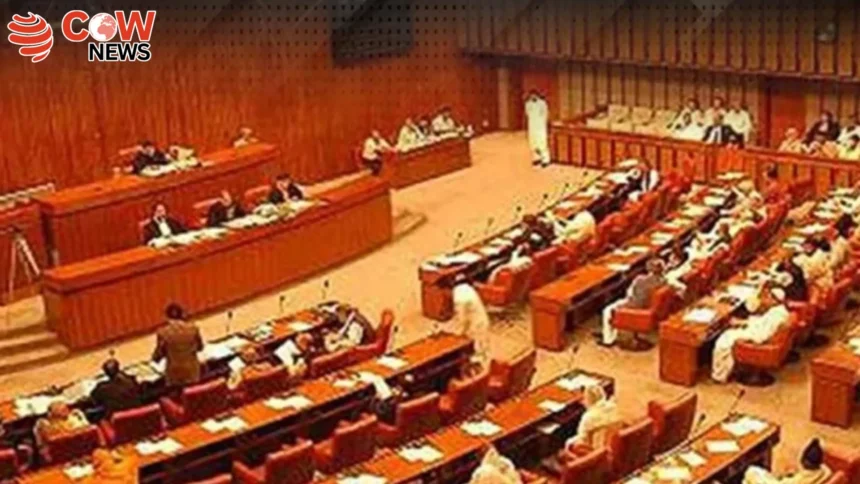ISLAMABAD(The COW News Digital) The Senate of Pakistan is set to convene today to review and approve the Army Act Amendment Bill, along with related defense and judicial legislation. The agenda, released ahead of the session, confirms that Defense Minister Khawaja Asif will present the Army Act Amendment Bill for Senate approval. In addition, the Pakistan Air Force Act Amendment Bill and the Pakistan Navy Ordinance Amendment Bill will also be tabled for consideration.
Law Minister Azam Nazeer Tarar is expected to present the Supreme Court Practice and Procedure Amendment Bill, completing a package of legislative reforms aimed at restructuring key defense and judicial frameworks. All bills have already secured approval from the National Assembly and will now undergo scrutiny in the upper house.
The Army Act 2025, which has been updated following the 27th constitutional amendment, allows for the issuance of a new notification for the Chief of Army Staff in the capacity of Chief of Defense Forces. Upon issuance of the notification, the tenure of the Army Chief will effectively restart under the revised framework.
According to the amended Army Act, the Army Chief, in his role as Chief of Defense Forces, will oversee the restructuring and integration of all branches of the Pakistan Army. The Prime Minister will appoint the Commander of the National Strategic Command based on the recommendations of the Army Chief. The tenure of the Commander, National Strategic Command, will be three years, with the possibility of a single extension for an additional three years.
Significantly, the amendment stipulates that the position of Chairman Joint Chiefs of Staff Committee will be abolished effective November 27, marking a structural shift in Pakistan’s military command hierarchy. Analysts suggest that these changes aim to streamline command protocols and centralize defense decision-making under the Chief of Army Staff.
The Senate session is expected to witness detailed deliberations on the implications of the amendments, particularly regarding tenure, command authority, and the reorganization of strategic military posts. Lawmakers are likely to engage in discussions on procedural, operational, and constitutional aspects before final approval.
Observers note that these amendments could have long-term ramifications for civil-military relations and the institutional hierarchy within Pakistan’s armed forces. The session will be closely monitored by both political stakeholders and defense analysts, given its significance for national security and governance.








